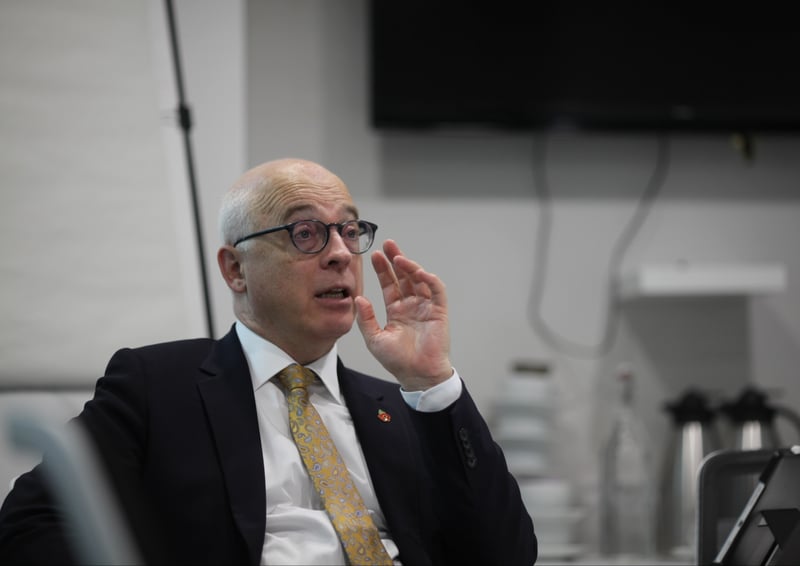
Mark's experience spans start-ups, scale-ups, and multinationals, working alongside senior leadership teams as well as owners, investors, and boards on key strategies and programme delivery – often in highly regulated industries and with significant cross-cultural challenges.
He has worked and lived in Canada, the UK, Turkey, Hungary, South Africa, Switzerland, and the GCC and managed businesses and brands in North America, Europe, Africa, the Middle East, and Asia.
Mark was asked why he founded gigCMO
The world we live in has undergone a fundamental tectonic shift.
I am not talking about the impact of the global COVID-19 pandemic – although it is amplifying changes in how we work.
I am talking about The Fourth Industrial Revolution. Klaus Schwab, Founder and Executive Chairman of the World Economic Forum, wrote a prescient article in Foreign Affairs at the end of 2015 that identified what it meant and how best to respond.
There were two key points that stood out when I first read this article that resonated with me:
1) that talent, more than capital, will be the key factor of production and that
2) the time to pause, reflect, and engage in meaningful conversation will be dramatically constrained.
They resonated with me because of my own personal and professional experience.
Firstly, I have worked internationally my whole life. I do not mean just living and working in places other than my birth country. I do not mean having business trips or holidays all over the globe (the former rather than the latter in my case). I do mean working with people from different cultures and countries for the success of our shared mission in profit and not-for-profit organisations. I learned very early through trial and error that although we are in search of the ultimate truth, so often, our perspective is influenced by the context of the lives we have lived.
Secondly, talent matters. I have been working in very large organisations for most of my adult life. It was clear that nearly every organisation had a similar mix of outstanding talents, average talents, and those who were clearly talented at something else (I do hope they have found what it was). Nobody wanted to be called average, but that is actually what most companies needed to thrive – some good people who day and day out did what needed to be done. And, of course, there were some exceptional people who had a talent for leadership or insight – sometimes but rarely both – who the organisation wanted to nurture and develop at all costs. There would be a whole myriad of programmes to support these people, although the day-to-day success of the company remained firmly determined by the “average” worker doing their job well enough to make it to the next day. Everybody spoke of talent management. However, every night these people walked out of the office into their own world. It was precisely these people who were most likely to leave the organisation. And why wouldn’t they?
Thirdly, as the world digitised, it was also very clear that over time there would be less need for the “average” person and more need for “knowledge” workers. Data and analytics were reshaping customer expectations, organisational structures, product development, and innovation. However, it was also providing an “always-on” environment. Because people could pivot on a moment, decisions were being taken from an insider's perspective and not with the benefit of a detached, reflective perspective. Doing anything seemed better than doing nothing. Many organisations do not have processes in place to prevent them from doing self-harm.
It became clear to me that most organisations need a sharp jolt to wake them up to the new competitive environment or a new set of skills to deliver business growth.
It was also evident that the existing solutions were either too
1) expensive – management consultancies,
2) theoretical – management consultancies
3) detached – headhunters and recruitment firms
4) risky – one-person band consultancies
5) local – only one perspective.
As a result, gigCMO was set up in the summer of 2016 to provide anyone who needed the brainpower some of the best marketing leaders at a fraction of the cost they would traditionally pay.




